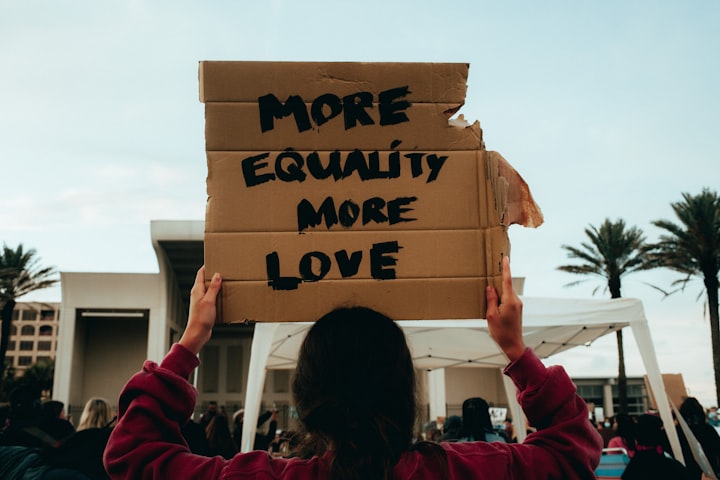dvancing Equity: Illuminating the Facts about Social Justice Movements
ocial justice movements have historically played a pivotal role in addressing systemic injustices, advocating for equal rights, and sparking positive societal change.

Introduction:
Social justice movements have historically played a pivotal role in addressing systemic injustices, advocating for equal rights, and sparking positive societal change. These movements have resonated with people worldwide, leading to transformative shifts in attitudes, policies, and practices. In this comprehensive article, we will explore the key facts surrounding social justice movements, their historical significance, and their enduring impact on promoting fairness and equality in society.
1. Origins of Social Justice Movements:
Social justice movements have deep historical roots, often arising in response to glaring inequalities and injustices within societies. Many of these movements trace their origins to the struggles against slavery, colonialism, and discrimination. Notable figures like Frederick Douglass, Mahatma Gandhi, and Martin Luther King Jr. laid the groundwork for the principles and strategies that guide social justice movements today.
2. Core Principles:
Social justice movements are grounded in several core principles, including the pursuit of equality, fairness, and the protection of human rights. These movements aim to dismantle oppressive systems, challenge discriminatory practices, and promote inclusivity and justice for marginalized communities.
3. Civil Rights Movement (1950s-1960s):
The American Civil Rights Movement is a landmark example of a social justice movement that sought to end racial segregation and discrimination against African Americans. Led by visionaries such as Martin Luther King Jr., Rosa Parks, and Malcolm X, this movement resulted in significant legislative changes, including the Civil Rights Act of 1964 and the Voting Rights Act of 1965, which advanced civil rights and voting rights for all Americans.
4. Women's Suffrage Movement (Late 19th-early 20th centuries):
The Women's Suffrage Movement fought tirelessly for women's right to vote. Activists like Susan B. Anthony, Elizabeth Cady Stanton, and Alice Paul played instrumental roles in securing the 19th Amendment to the U.S. Constitution, which granted women the right to vote in 1920. This movement set a precedent for advocating for gender equality.
5. LGBTQ+ Rights Movement (20th Century-Present):
The LGBTQ+ rights movement has made remarkable progress in advancing the rights and acceptance of LGBTQ+ individuals. Key milestones include the Stonewall riots in 1969, which sparked the modern LGBTQ+ rights movement, and the legalization of same-sex marriage in numerous countries. These movements continue to challenge discrimination and promote inclusivity and equal rights for all.
6. Environmental Justice Movement:
The environmental justice movement advocates for equitable access to clean air, water, and a healthy environment, particularly for communities of color and marginalized groups disproportionately affected by pollution and environmental hazards. This movement emphasizes the interconnectedness of environmental, social, and racial justice.
7. Black Lives Matter Movement (2013-Present):
The Black Lives Matter movement emerged in response to police violence and systemic racism against Black individuals. It gained prominence following the tragic death of Trayvon Martin and has since become a global movement advocating for racial justice and an end to police brutality. Protests and calls for reform have ignited conversations about racial inequality and police accountability.
8. Disability Rights Movement (20th Century-Present):
The disability rights movement has been instrumental in advocating for equal access, accommodation, and rights for individuals with disabilities. Key achievements include the Americans with Disabilities Act (ADA) in the United States, which prohibits discrimination based on disability and promotes accessibility.
9. Indigenous Rights Movements:
Indigenous rights movements around the world seek to protect the rights, land, and cultural heritage of Indigenous peoples. These movements advocate for self-determination, land rights, and recognition of Indigenous sovereignty.
10. Global Impact:
Social justice movements are not confined to one country or region. They often have a global impact, influencing other movements and fostering international solidarity. For example, the Civil Rights Movement in the United States inspired movements for racial equality worldwide, and the fight for LGBTQ+ rights has gained momentum in many countries.
Conclusion:
Social justice movements have played a vital role in challenging systemic injustices, advocating for equality, and driving social progress. These movements have left an enduring legacy, inspiring change, and fostering dialogue about the principles of fairness, justice, and human rights. While progress has been made, challenges remain, and the work of social justice movements is ongoing. By understanding the facts and principles underlying these movements, we can appreciate their significance in promoting a more just and equitable society for all. As we continue to stand together, advocate for change, and challenge injustice, we contribute to the ongoing journey toward a more equitable and inclusive world.
About the Creator
Stephen Keith B. Labto
Keith's transition from computer engineer to passionate writer was unique. Keith's curiosity and imagination pushed him to try something new. He invites readers to explore knowledge's various and beautiful landscapes one word at a time.






Comments
There are no comments for this story
Be the first to respond and start the conversation.